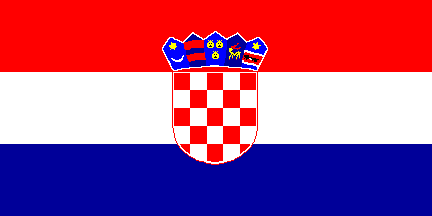Q: What is the first step for a non-resident when opening a trading company in Croatia?
A: The first step for a non-resident (foreign person) when opening a company in Croatia is obtaining the Personal Identification Number (OIB). A foreign person files a request for the assignment of OIB to the local authority of the Tax Administration through an authorizing officer by filling out the "Request form for assignment of OIB". OIB is determined and assigned to foreign natural and legal entities for the purpose of opening a company in Croatia.
Q: How long does it take to open a trading company in Croatia?
A: A company's foundation period depends on whether you want to open d.o.o. (Ltd - Limited) or j.d.o.o. (simply Ltd). These two forms differ in the costs of founding, equity and internal organization. For j.d.o.o., the costs of establishing (including court fees, public notary costs, publishing costs in Narodne Novine magazine, etc.) amount to about HRK 1,000 as opposed to HRK 6,000 for opening d.o.o. The equity capital for the d.o.o is at least 20.000 kn while the same for j.d.o.o at least 10kn. The number of standard company members (d.o.o.) can be "unlimited" and multiple directors may be appointed. On the contrary, j.d.o.o. is reduced to a maximum of 3 members and one director. For a company founded by foreign entities in Croatia, d.o.o is always a better option for other features in its use. When in business, for j.d.o.o. it's important to emphasize that it must at some point become a d.o.o or a limited liability company. For this transformation there is no deadline, it depends on the company. At the moment when j.d.o.o. starts making profit, one quarter of that gain is required to be allocated to special legal reserves at the end of the financial year. In other words, that profit cannot be freely disposed of as it may be in d.o.o. After the amount of legal reserves reaches HRK 20,000, j.d.o.o, by law, has to become d.o.o.
Q: Is it really necessary to have a Croatian citizen as a director or at least one employee in the company?
A: No! There is no need for an employee (either a director or a regular employee) of Croatian nationality, but there must be an active person working for the company who is a Croatian citizen or a foreign person (a member of society) with proof that he or she is paying a contribution in Croatia or in an EU Member State. There is also a possibility of signing a contract with an external consultant who can act as an administrator in the company. From experience we recommend hiring a local employee. In this way, apart from removing the language barrier, you leave the impression of a serious investor towards state institutions.
Q: Is it true that the Croatian tax system differs from other EU countries?
A: As a member of the EU, Croatia was obliged to align tax systems with European standards. There are some differences in operational terms, but it is important to emphasize that tax returns and compensation are done without any problems.
Q: If a foreign natural or legal person pays taxes in Croatia, should they pay it in their country as well?
A: No! This depends on several factors, eg how you will dispose of the company's profits, what is the status of the owner, etc. Companies that pay out profits in Croatia pay income tax only in Croatia. If the owner of a Croatian company is a foreign company (affiliated company), it is possible to receive payment in another country, where tax is paid. There are, of course, many more opportunities that are different from case to case and therefore it is good to have a quality consultant who knows Croatian and European regulations, so that nothing can go wrong.
Q: How to start a company in Croatia?
A: For more useful information on starting a company in Croatia, visit the following link: https://www.expatincroatia.com/business-in-croatia/



